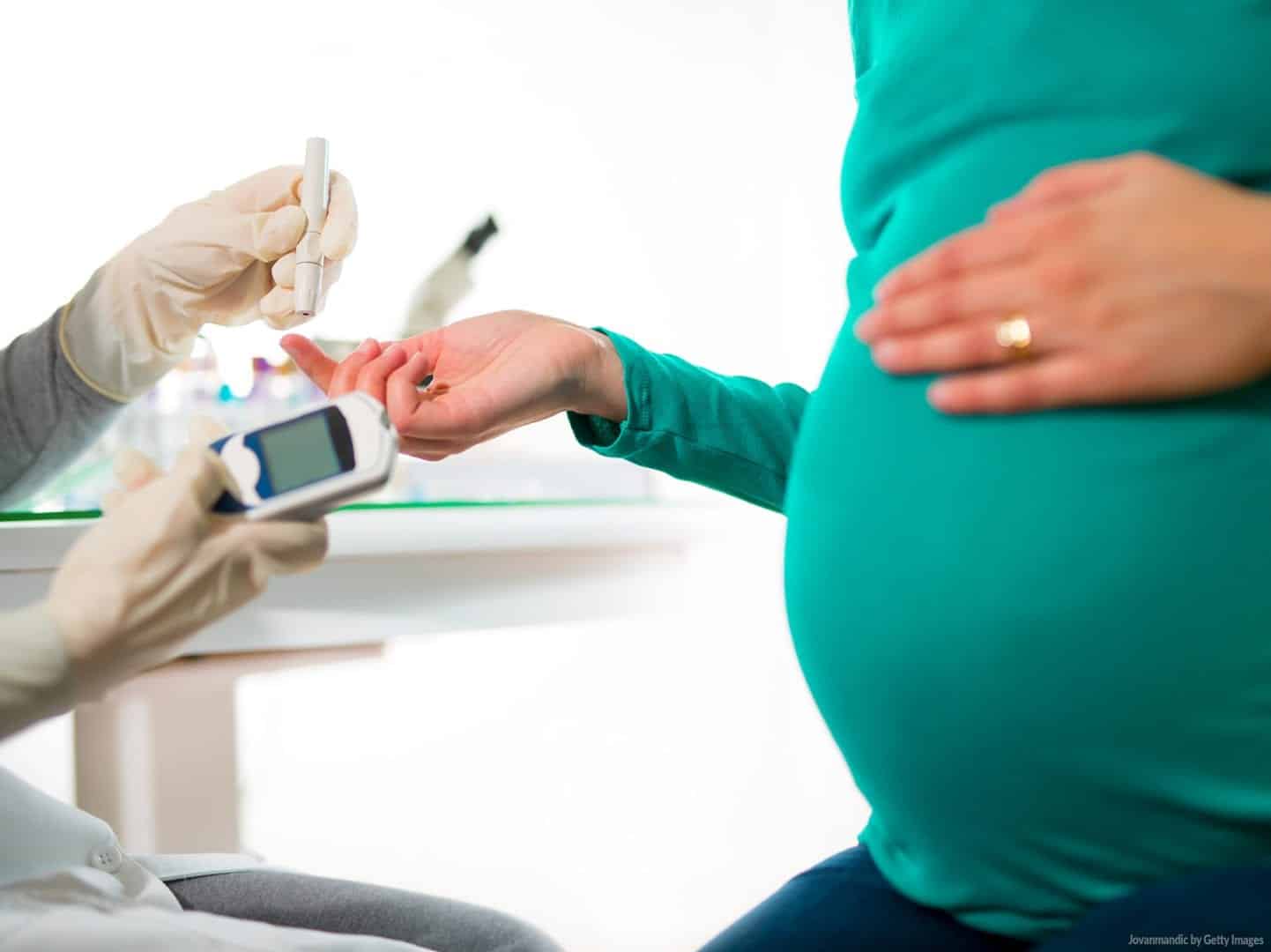Gestational diabetes is a problem faced by many pregnant women. It is common for it to appear in the sixth month and persist until the end of the pregnancy.
In short, gestational diabetes is an abnormal blood sugar level diagnosed for the first time during pregnancy. According to research, around 7.5% of Brazilian women are diagnosed with gestational diabetes.
Especially as the name suggests, this type of diabetes only appears during pregnancy, therefore it tends to disappear soon after pregnancy. However, it can occur when some of the hormones generated during pregnancy interfere with the body’s use of insulin.
Why does diabetes occur during pregnancy?

The pregnant woman definitely undergoes several hormonal changes throughout the nine months of fetal development. This way, the body starts to produce a greater amount of insulin, responsible for transporting glucose from food to the cells. This happens more intensely in the last trimester of pregnancy, when the woman needs to ingest a greater amount of carbohydrates for the child to develop well.
However, it happens that other hormones released by the placenta disrupt this process and force the pancreas, the gland that produces insulin, to work overtime to keep the substance levels in order. Ultimately, the effort is often not enough and there is too much sugar left in the bloodstream.
Symptoms

First of all, it must be said that gestational diabetes rarely causes symptoms. Therefore, it is extremely important to have periodic tests throughout your pregnancy, especially between weeks 24 and 28. It is important to have these tests as high blood sugar can cause problems for you and your baby.
However, in specific cases, some women experience the following sensations:
- Increase from home;
- Increased urination;
- Increased hunger;
- Blurred vision.
10 main risk factors for gestational diabetes
- Pregnancy at an older age;
- Excessive weight gain during pregnancy;
- High pressure;
- High triglycerides;
- High cholesterol;
- Overweight or obesity;
- Polycystic ovary syndrome;
- Family history of diabetes;
- Twin pregnancy;
- Diabetes in previous pregnancies.
How to prevent?

In summary, as excessive weight gain is one of those responsible for the disorder, adopting a balanced diet and, above all, exercising are recommended strategies to keep glucose levels under control. This, by the way, also applies to avoiding type 2 diabetes.
How to control?

Firstly with diets and reducing the intake of sugars and fats, in addition to physical activity (when permitted by the obstetrician). However, around 20% of women need insulin treatment, which does not cause any harm to the baby.
Diagnosis

First of all, any change in the results of the assessments raises the alarm for gestational diabetes. Therefore, ultrasound exams are extremely important. In short, signs such as a larger-than-expected fetus and changes in the volume of amniotic fluid are indicative of problems.
However, around the 24th week of pregnancy, the doctor usually requests an oral glucose tolerance test, also known as a glycemic curve. In it, the pregnant woman drinks a sugary solution and samples of her blood are taken every hour.
How to treat gestational diabetes?

Firstly, meals should be divided throughout the day and, above all, patients need to reduce fat. Above all, fruits, vegetables and whole foods should be a constant presence on their menu. If there is no contraindication from the obstetrician, moderate physical exercises are allies to tame the problem.
In addition, artificial sweeteners can be used in moderation to replace sugars in the diet.
Are babies affected?

Babies of mothers with gestational diabetes will have greater glucose availability and will increase their insulin production in order to store this excess as energy in their cells.
Did you like the article? read also: Superfetation – What it is, how it happens, risks and curiosities
Featured Image: New Song
Fontes: Hilab Abril

Sign up for our newsletter and stay up to date with exclusive news
that can transform your routine!
Warning: Undefined array key "title" in /home/storelat/public_html/wp-content/plugins/link-whisper-premium/templates/frontend/related-posts.php on line 12
Warning: Undefined array key "title_tag" in /home/storelat/public_html/wp-content/plugins/link-whisper-premium/templates/frontend/related-posts.php on line 13




